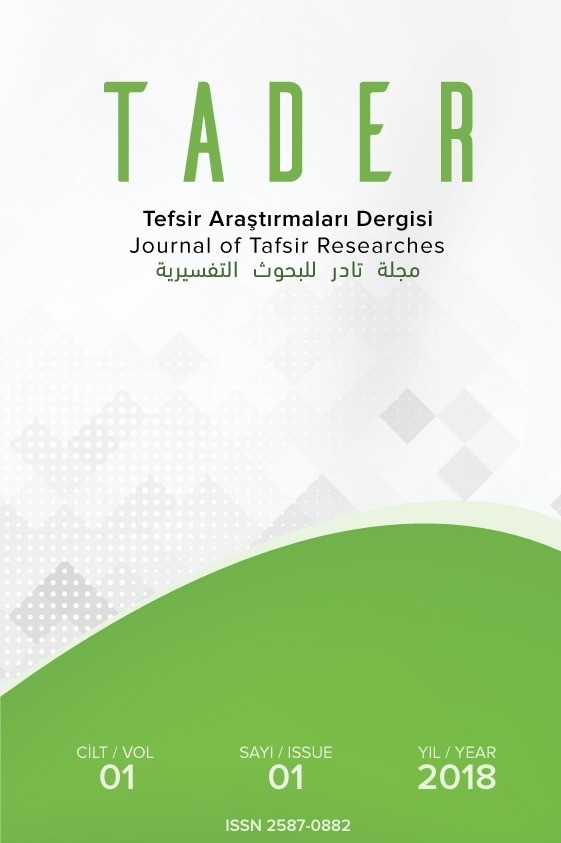
Tefsir Araştırmaları Dergisi
Yazarlar: ["Muhammed Emin GÖRGÜN"]
Konular:-
DOI:10.31121/tader.1252922
Anahtar Kelimeler:Üslûbu’l-Kur’ân,İ‘câzu’l-Kur’ân,Arap Dili ve Belâgati,Îcâz,İ‘câz,Ecvibe-i müskite
Özet: The Arabs, who were advanced in literature during the Jāhiliya period, were invited to Islam, the last religion, by sending a prophet and a book in their own language. There were those who believed in this divine invitation as well as those who rejected the prophet and the book sent to them and chose the path of denial. Although they were advanced in eloquence, these disbelievers, who could not hide their admiration for the unique verse, content and eloquence of the Qur'ān, first tried to belittle the Qur’ān with expressions such as "magic, poet's word, invention of the prophet". However, when they were challenged to bring the like of the Qur’ān, they were helpless and had to confess their helplessness. In fact, in addition to the answers given to their claims and denials against the Qur’ān, silencing answers were given to many of their claims such as denying resurrection after death, claiming divinity and so on. These silencing answers given by the Qur’ān to the unbelievers are expressed in the literary literature with the concept of al-ajwibah al-muskitah. This style of expression, the essence of which consists of quick and sudden answers that silence the interlocutor with strong evidence and prevent the interlocutor from responding, is a style of expression that stands out in Arabic literature with its features of ijāz and i‘jāz. This style of expression, which has been frequently used by the Arabs in social life since the Jāhiliya period, finds its representation in the Qur’ān, as in all other areas, and provides guidance for a Muslim personality in using the right means of expression, especially in communicating and guiding. There is no detached study that deals with the literary aspects of this style, which has an important place in Arabic literature, and the examples of its use in the Qur’ān. In this study, the verses of al-ajwibah al-muskitah, especially the verses of tehaddî (āyāt al-taḥaddī), which we think represent the i‘jāz feature of the Qur’ān, which is an element of the miracle of the Qur'ān, will be classified in terms of content and addressee, and the relationship between the style in question and the sciences of tafsīr will be analyzed.